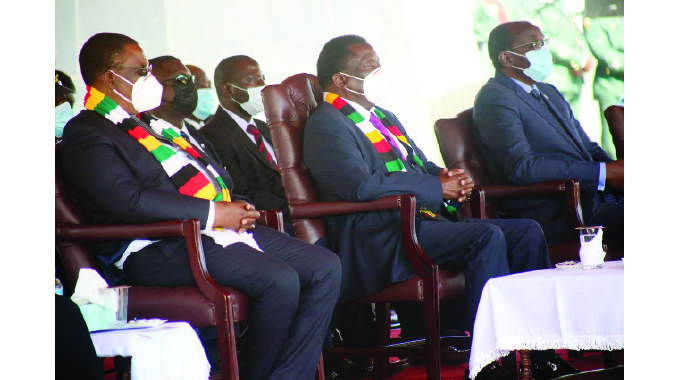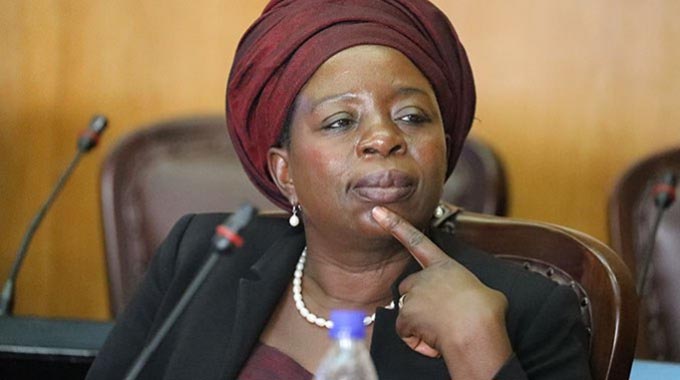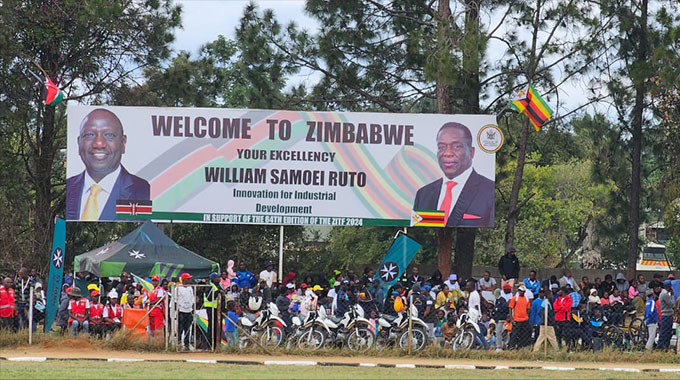Bulawayo tops country Covid-19 infection risk

Thandeka Moyo- Ndlovu, Health Reporter
THE Metropolitan provinces of Bulawayo and Harare are at the highest risk of a debilitating third wave of Covid-19 infections in the country amid reports that the country’s seven-day rolling average for infections has shot up from 13 to 900 per day in two weeks.
According to the Ministry of Health and Child Care, the two provinces have the highest Incidence Risk assessment based on recorded trends of infections.
The assessment measures the number of likely infections per 100 000 people.
The bigger the number the higher the chances that infections could spread faster if positive behaviour change to follow Covid-19 prevention measures like staying at home, masking up and sanitising hands frequently are not adopted.
Matabeleland south leads the country’s rural provinces Incidence Risk index.
Bulawayo and Matabeleland South, due to their proximity to South Africa, which has been recording the highest daily infections and deaths since the pandemic broke out on the continent early last year, have added risk.
Over the past few days, the three provinces have recorded an upsurge in cases which led to Bulawayo running out of hospital space for Covid-19 admissions.
Bulawayo hospitals are experiencing a shortage of space in wards designated for Covid-19 as positive cases continue to soar in the city with Thorngrove Infectious Diseases Hospital — a designated isolation centre, having patients sharing oxygen points. According to a weekly Covid-19 update for the city, as of Friday, Thorngrove had 34 patients admitted to the hospital’s isolation wing against a bed capacity of 28.
Statistics from the Ministry of Health and Child Care show that Bulawayo has the highest Incidence Risk of 906, almost double that of Harare at 567 while Matabeleland South has 402. “About 446 new confirmed Covid-19 cases and 120 deaths were reported from June 26 to July 2, 2021 giving a cumulative total of 52 663 cases and 1 841 deaths. The 120 deaths reported in the last seven days were from Bulawayo (27), Harare (25), Manicaland (24), Mashonaland Central (18), Mashonaland East (5), Mashonaland West (4), Midlands (3), Masvingo and Matabeleland North reported 2 deaths each,” read a report from the Ministry.
“Seven provinces contributed 78,8 percent of the cumulative cases namely Harare (28,2 percent), Bulawayo (13,3 percent), Manicaland (9,2 percent), Midlands (7,6 percent) Masvingo (7,4 percent), Mashonaland East (6,7 percent) and Matabeleland South (6,496). The case fatality rate has decreased from 3,896 previous week to 3,596 for the week under review.”
As at 3 July 2021, Zimbabwe had 53 665 confirmed cases, including 39 792 recoveries and 1 859 deaths. To date, a total of 791 901 people have been vaccinated against Covid-19.
Contacted for comment, health expert Professor Solwayo Ngwenya said people were finally experiencing what they once chose to term “alarmistic views.”
He said unfortunately hospitals were already struggling to cater for those in need of treatment or oxygen and the situation is likely to end in tears for people in Bulawayo and Zimbabwe.
“We are in a serious situation in Bulawayo, Zimbabwe and Sadc. The virus is soaring in infections. Bulawayo was said to be a hotspot two weeks ago and already we are experiencing the lack of beds and space. People are sick and the death rate is increasing yet when you look at the public, it remains very complacent,” said Prof Ngwenya. “I wonder why people cannot do something as simple as wearing face masks to cover their noses and mouths. It is surely unbelievable. Covid-19 has rapidly spread and the hospitalisations are rising, we are not going to cope, this is one of the extreme cases we have faced as a country.”
Prof Ngwenya predicted that if people do not change their behaviour, up to 50 percent of the population will contract the pandemic.
“It’s so sad and depressing as people seem to be unaware of the tragedy facing the country,” he said.
Prof Ngwenya said the incident risk is very high for Bulawayo and Matabeleland South because Bulawayo is a hotspot as a whole.
“This means we must pull up our socks and avert this disaster that is coming and do the correct things like testing, contact tracing, quarantine and all those things that curb the spread of the pandemic,” he said.
The national Covid-19 chief coordinator Dr Agnes Mahomva said complacency had landed the country in a critical situation.
She urged people to seriously adhere to recommended guidelines so that they are spared from the catastrophe.
“Zimbabwe is currently experiencing a surge in cases and deaths. As of Wednesday June 30, we saw our seven- day rolling average of new cases going up to 900 cases daily when we compare it to two weeks ago when we only had about 13 per day. This is really of concern and we need to make sure that we are complying with all the recommended guidelines if we seriously want this epidemic to end soon,” said Dr Mahomva.
She said there is a need to ensure social distancing, regular washing of hands with soap and water and also get vaccinated.
“Remember vaccination prevents you from getting the disease and if you get it, it prevents you from getting severely ill and prevents you from getting hospitalised,” said Dr Mahomva.
Bulawayo health director, Dr Edwin Sibanda recently said patients at Thorngrove Infectious Diseases Hospital were sharing oxygen points, which he said was not ideal.
He said the situation could be worse in the coming few days as United Bulawayo Hospital’s (UBH) Old Bartley Memorial was also fast filling up.
Mpilo Central Hospital, with a 32- bed capacity for Covid-19 patients already has 14 patients, meaning they can only take in a further 18. At Elangeni Isolation Centre which takes in those who do not need hospitalisation, there are 34 patients admitted, with a bed capacity of 70 while at the Roman Catholic-owned Mater Dei hospital, with a bed capacity of 35, just nine people are admitted as the private facility charges way above what the majority can afford.-@thamamoe.








Comments